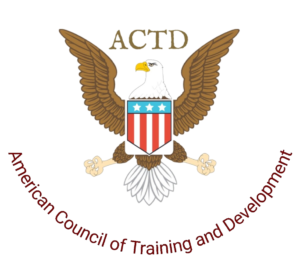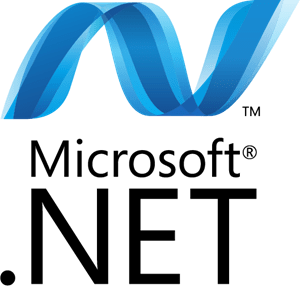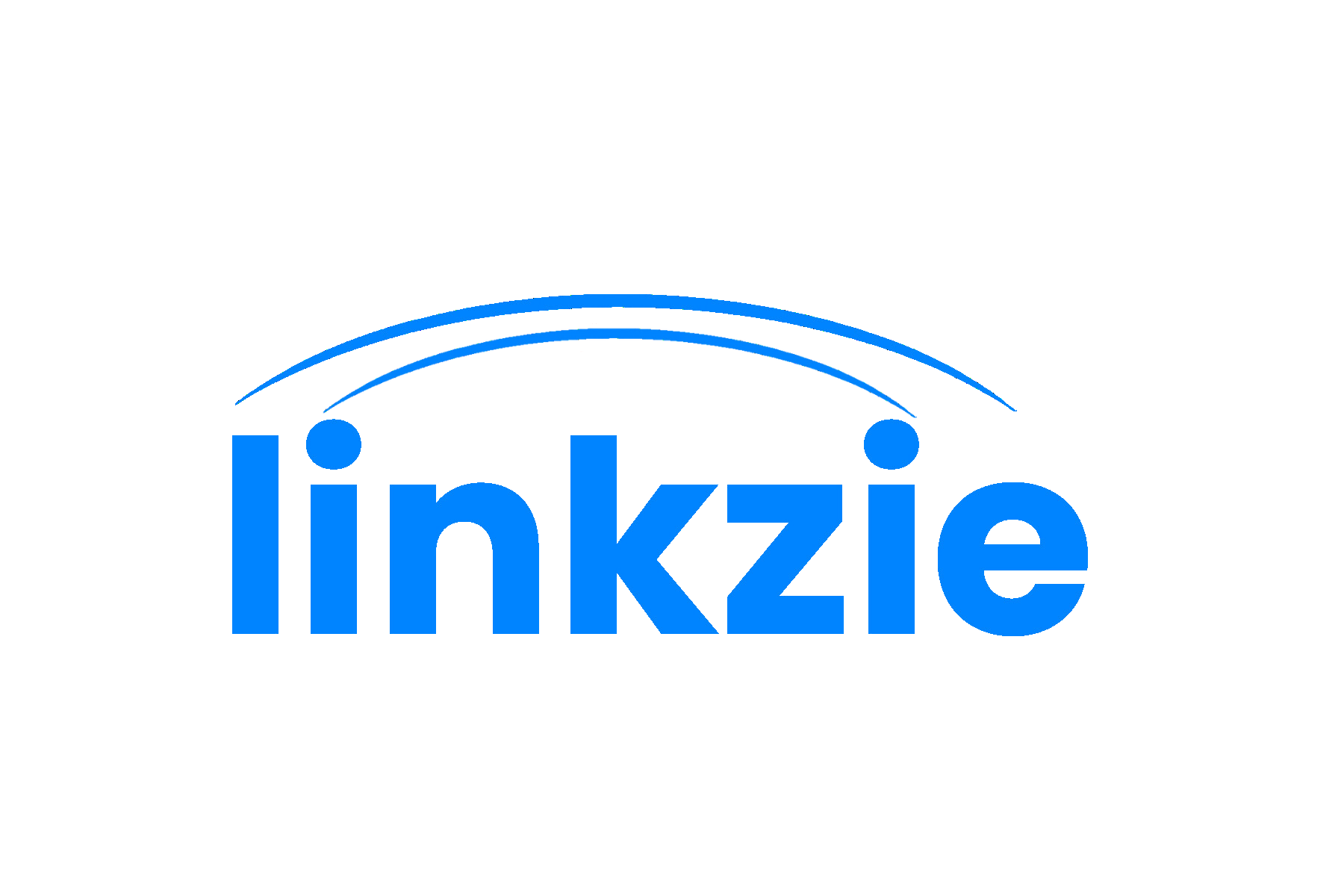.NET Full Stack: Mastering End-to-End Web and Software Development
100% Placement Assistance
In the ever-evolving world of technology, .NET Full Stack Development is the essential foundation for building dynamic, scalable, and robust applications. Mastering both front-end and back-end technologies, .NET Full Stack developers play a pivotal role in delivering seamless user experiences and efficient server-side logic. From creating intuitive user interfaces to managing databases, APIs, and cloud integrations, .NET Full Stack is the backbone that supports the entire lifecycle of modern applications. Embrace the versatility and power of .NET Full Stack development to stay ahead in a world where innovation and agility drive success.
Take The First Step To Your Goals
Accredited by

We are accredited by the American Council of Training and Development (ACTD), a prestigious organization based in the United States of America (USA). This accreditation underscores our commitment to delivering high-quality, globally recognized training programs.
ACTD accreditation ensures that our training services adhere to International Standards in Curriculum Design, Training Delivery, and Learner Outcomes. It reflects our dedication to equipping individuals and organizations with the skills and knowledge essential for success in today’s dynamic job market.
Course Overview
The .NET Full Stack Development Training Program empowers professionals to excel in full stack development using .NET technologies. Through hands-on projects and expert-led instruction, participants gain proficiency in front-end frameworks, back-end development, databases, and RESTful APIs. This program prepares participants for the job market with practical labs, real-world scenarios, and interview coaching, equipping them for success in .NET Full Stack development roles.
Distinctive Advantages
- E-Learning Opportunities
- Seasoned Professional Trainers
- Hands-On Project Experience
- Always-On Practical Live Assistance
- Professional Resume Writing
- Interactive Learning Sessions
- Expert-Led Workshops
- Access Training Anywhere
- Interview Preparation
- Soft Skill Enhancement
- Corporate Culture Orientation
- Placement Assistance
- Alumni Support Network
- Job Market Insights

Crafted by seasoned professionals, the .NET Full Stack curriculum focuses on hands-on training with real-world scenarios, ensuring students gain practical, job-ready skills through immersive experience

It’s not merely learning – it’s an immersive, life-changing transformation
- Introduction to Full Stack Development
- Web Development Concepts and Techniques
- .NET Framework and .NET Core
- C# and Programming Principles
- ASP.NET Core: Web Applications & APIs
- Frontend Development with Angular/React
- Database Management
- Authentication and Authorization
- Capstone Project
- Career Development and Networking
- Communication and Collaboration Skills
- Effective Interview Preparation
Program Overview: Creating Fluid and Dynamic Digital Experiences through .NET Full Stack Development
Module 1: Introduction to Full Stack Development
- Overview of Full Stack Development
- Role of a Full Stack Developer
- Software Development Life Cycle (SDLC)
Module 2: Web Development Concepts and Techniques
- Introduction to HTML, CSS, and JavaScript
- Responsive Design Principles
- Introduction to Web Standards and Accessibility
Module 3: .NET Framework and .NET Core
- Understanding .NET Framework vs. .NET Core
- Setting Up the Development Environment
- Building a Simple Console Application
- .NET Libraries and APIs
Module 4: Core C# Fundamentals and Programming Principles
Introduction to C# Programming
- Overview of C# syntax and structure.
- Setting up the C# environment (Visual Studio)
Data Types, Variables, and Operators
- Understanding value types and reference types
- Declaring and initializing variables
- Using operators and expressions
Control Structures
- Conditional statements
- Looping constructs (for, while, do-while, foreach).
- Using break and continue statements.
Functions and Scope
- Defining and invoking methods
- Understanding parameter passing (by value, by reference)
- Variable scope and lifetime (local, global)
Object-Oriented Programming Concepts
- Defining and using classes and objects
- Understanding constructors, destructors, and access modifiers
- Inheritance, Polymorphism, Encapsulation, and Abstraction
- Implementing interfaces and abstract classes
- React Router
Exception Handling and Debugging Techniques
- Understanding exceptions and error handling
- Using try-catch-finally blocks
- Implementing custom exceptions
- Debugging techniques using Visual Studio
- React Router
Working with Collections and LINQ
- Overview of collections (arrays, lists, dictionaries, sets)
- Introduction to LINQ (Language Integrated Query)
- Performing queries on collections using LINQ
- Debugging techniques using Visual Studio
- React Router
Module 5: ASP.NET Core: Web Applications & APIs
Introduction to ASP.NET Core MVC
- Overview of the Model-View-Controller (MVC) architecture
- Understanding the request-response lifecycle in ASP.NET Core
- Setting up a new ASP.NET Core MVC project
Building Web Applications with ASP.NET Core
- Creating controllers and actions
- Working with Views and Razor syntax
- Understanding View Models and passing data
Understanding Middleware and Dependency Injection
- Introduction to middleware and its role in the request pipeline
- Creating custom middleware components
- Utilizing dependency injection in ASP.NET Core
Creating RESTful APIs with ASP.NET Core Web API
- Understanding REST principles and design
- Creating API controllers and methods
- Implementing HTTP verbs (GET, POST, PUT, DELETE)
- Using model binding and validation for API requests
Routing and Attribute Routing
- Understanding conventional routing vs. attribute routing.
- Defining routes in controllers and actions.
- Customizing routes for better API design.
Data Access with Entity Framework Core
- Entity Framework Core and its role in data access
- Configuring a DbContext and creating models
- Performing CRUD operations using EF Core
- Implementing migrations for database schema changes
Module 6: Frontend Development with Angular/React
- Introduction to Angular/React Framework
- Components, Modules, and Services
- State Management (using NgRx or Redux)
- Consuming APIs with HTTP Client
- Routing and Navigation
Module 7: Database Management
- Introduction to SQL and Relational Databases
- Working with Entity Framework Core
- Database Design and Normalization
- CRUD Operations and Migrations
- NoSQL Databases
Module 8: Authentication and Authorization
- Understanding Authentication vs. Authorization
- Implementing JWT Authentication in ASP.NET Core
- Role-Based Access Control
- Securing APIs
Module 9: Capstone Project
- Hands-on Group Project simulating real-world applications
- Presentation and Code Review
- Focus on best practices, Development & Testing
Module 10: Career Development and Networking
- Understanding Different Roles in Full Stack Development
- Exploring Industry Trends and Job Market Insights
- Building a Professional Online Presence
Module 11: Communication and Collaboration Skills
- Communication skills for Developer
- Collaboration in cross-functional teams
- Problem-solving and critical thinking
Module 12: Effective Interview Preparation
- Common interview questions for Full Stack Development role
- Behavioural interview techniques
- Mock interviews and feedback sessions
Module 13: Professional Resume Building & Networking
- Crafting a resume tailored to Full Stack roles
- Highlighting technical skills and project experience
- LinkedIn profile optimization and online presence
Industry Insight: Navigating the Rising Demand for .NET Full Stack Development Skills in Today's Economy
Current market research indicates that .NET Full Stack development skills are experiencing significant demand, particularly in software engineering roles. .NET Full Stack developers are essential for creating dynamic, scalable applications by integrating front-end and back-end technologies. As businesses increasingly focus on digital transformation and user-centric solutions, professionals with expertise in .NET Full Stack development are in high demand. These developers can expect competitive salaries averaging between INR 8 L to 12 L per year, reflecting their ability to design and implement comprehensive software solutions that drive effective business outcomes across various industries.
Eligibility Criteria
With the rising demand for .NET Full Stack development, professionals from diverse backgrounds are actively seeking training in this field. This course is ideal for individuals looking to advance their careers in software development, web applications, and cloud technologies. Fresh Graduates, College Students, Aspiring Developers, Software Engineers, and IT Professionals aiming to specialize in .NET applications will find this training particularly beneficial
Essential Background
Prior experience in .NET Full Stack development is not required to enroll in this course, although having a foundational understanding of programming concepts and web technologies can be beneficial. Mastering .NET Full Stack development requires commitment and hard work, but the course is designed to simplify the intricacies of both front-end and back-end technologies. With the right dedication and effort, you can build your .NET expertise and enhance your software development skills. Enroll in this .NET Full Stack course to gain a competitive advantage in the rapidly evolving tech landscape.
- Seasoned Industry Expert: Over 10 years of experience in .NET Full Stack development, web technologies, and software engineering.
- Proven Track Record: Extensive background in delivering successful application solutions across diverse sectors.
- Hands-On Experience: Expertise in building and optimizing full stack applications, from front-end frameworks to back-end services.
- Educational Background: Strong academic credentials with relevant degrees and certifications in software development.
- Advanced Skill Set: Proficient in a wide array of technologies, including C#, ASP.NET, Angular, React, Java Script, HTML, CSS.
- Industry Leadership: Recognized as a leader in software development, with a history of significant contributions to the field.
- Practical Insights: Shares real-world case studies and examples drawn from years of experience in the industry.
- Innovative Approach: Known for implementing modern practices and techniques in full stack development.
- Professional Achievements: Successfully led numerous high-profile projects and application development initiatives.
- Mentorship Skills: Dedicated to guiding and mentoring students to help them achieve their career aspirations.
- Global Perspective: Experience collaborating with international teams, providing a broad view of industry practices.
- Technical Proficiency: In-depth knowledge of Java ecosystems, front-end technologies, and development frameworks.
- Effective Communication: Exceptional ability to explain complex concepts in a clear and engaging manner.
- Continuous Learning: Committed to keeping up with the latest trends and advancements in technology.
- Client Success Stories: Demonstrated success in delivering impactful software solutions for a variety of clients.
- Customized Training: Skilled in adapting training programs to address the unique needs of diverse learner groups.
